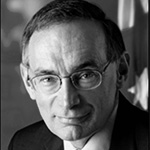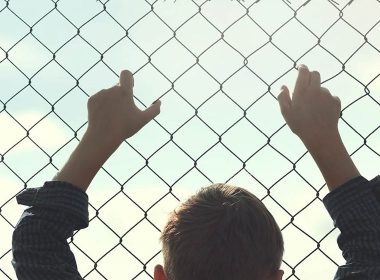It is not a time when you drop scrutiny and it is very disturbing that legislation has excluded the possibility of parliamentary disallowance. When you are taking rights from people, even at the strongest justification, you need to have heightened scrutiny
The actions of leaders in NSW during the COVID-19 pandemic should be subject to an independent Royal Commission in order to maintain public confidence in government, a human rights panel has heard.
The virtual webinar event, hosted by the Law Society of NSW, included speeches and Q&A with George Williams AO the Deputy Vice Chancellor at UNSW and former NSW Premier and Foreign Minister Bob Carr.
Led by President of the Law Society, Joanne van der Plaat, the panel probed the impact of the pandemic on human rights in NSW, looking at the legacy of more than two years of lockdowns, closed state borders, gathering restrictions and importantly, emergency legislation.
The session explored the lingering impact of denying tens of thousands of Australian citizens the right to return home and reconnect with families, or the possibility of being arrested for leaving home except for a limited number of reasons.
George Williams AO has served as Dean of UNSW Law and appeared in the High Court in many cases over the past two decades, including on freedom of speech, freedom from racial discrimination, and the rule of law.
Williams argued the pandemic brought about the “greatest restriction on basic civil liberties in Australia since World War Two”. He is calling for an independent Royal Commission into the responses from state and federal leaders in handling COVID-19, with a focus on the restrictions that profoundly impacted human rights.
“It would look at the lessons, at what we need to do next time and give people comfort that this has been subject to scrutiny and vigilance given the extraordinary nature of the powers that have been exercised,” he said.
“Without transparency, there is always going to be a suspicion at the very least that the government is hiding their mistakes.”
Williams also discussed what he believes were key failings by governments during the pandemic, noting the vital role of parliament and lack of opportunity for the court system to argue against infringements of human rights.
Williams criticised the NSW Parliament for being absent from June to October 2021 during long months of lockdown, leaving law making down to “rule by decree through a series of rolling health orders” without usual oversight. He argued parliament should have been held virtually, much the same as businesses were made to adapt to lockdown measures.
 Bob Carr
Bob Carr
“Parliament needs to provide the most amount of scrutiny when it comes to bringing in powers that have such a profound impact on human liberties,” he said.
“It is vital that parliament is seen to sit, is seen to listen and is seen to respond to community concerns. That did not happen through the worst of the pandemic in NSW.
“Parliament is no doubt an annoyance for busy ministers especially during a pandemic. But in my view, there is no good excuse for parliament not to have sat during that period.”
Carr, now Professor of Industry in Climate and Business at the University of Technology Sydney agreed with Williams regarding a need for heightened scrutiny and accountability during a crisis.
“It is not a time when you drop scrutiny and it is very disturbing that legislation has excluded the possibility of parliamentary disallowance. When you are taking rights from people, even at the strongest justification, you need to have heightened scrutiny,” he said.
The topic of a human rights act at a state and national level was also discussed during the panel. Last year, one poll found 76 per cent of Australians want a national Human Rights Act. Another survey found 83 per cent were supportive of the legislation.
The Law Society has advocated for a Bill of Rights for NSW from as early as 2000. In 2019, they called for a standalone piece of human rights legislation, as part of the state Election Policy Platform.
“This identified ‘a clear need for better safeguards of individual rights and freedoms in NSW’. The pandemic has shone a bright light on how confusing the absence of such protections are,” Van der Plaat said.
“Our fellow citizens are crying out for clarity.”




